Rauf Bolden: Many questions remain on Mayor Tony Kennons’s “work” boat outing

Rauf Bolden thinks the mayor of Orange Beach exposed the city to an unnecessary liability and violated ethics laws in the process.
Rauf Bolden: Repeal the Baldwin County lodging tax district in Orange Beach
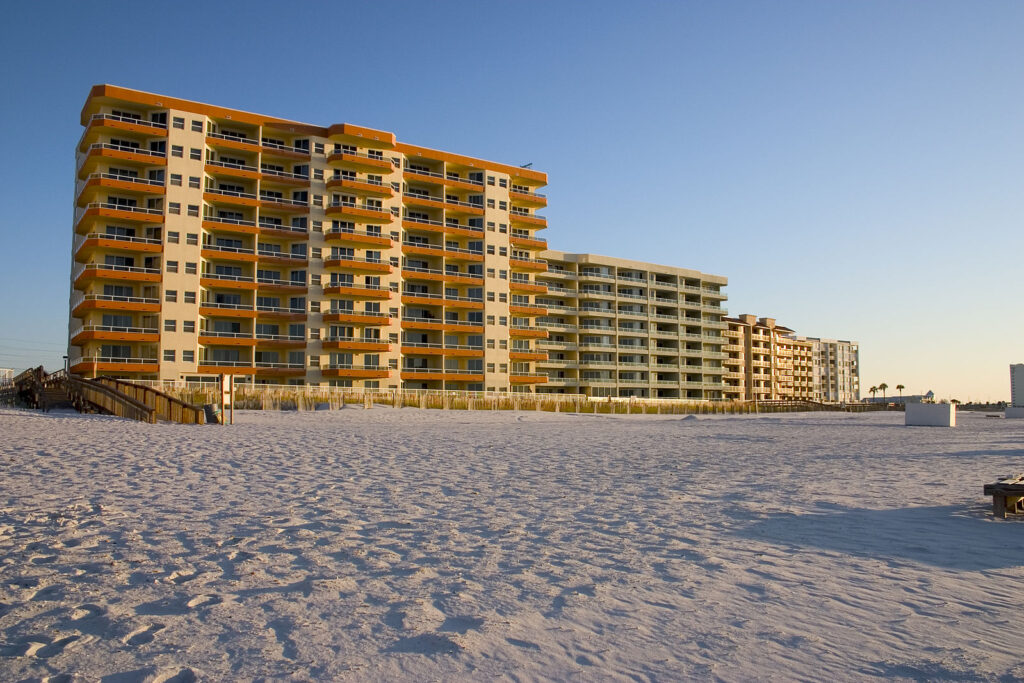
Rauf Bolden discusses the lodging tax district in Baldwin County.
Rauf Bolden: Avoiding water related deaths in Orange Beach

Water deaths can easily be avoided with a life vest.
Rauf Bolden: Should Orange Beach ban open & concealed carry at all city facilities

Shootings happen every day in America. I argue for a common-sense approach at municipal facilities, respecting our After-School Programs like Camp Sunshine and Expect Excellence. Columbine, Sandy Hook and Parkland are still fresh in our minds, banning open and concealed carry at city facilities makes sense, lowering the level of fear for adults and children inside. The Second Amendment gives American citizens the right to bear arms. “A well-regulated Militia, being necessary to the security of a free State, the right of the people to keep and bear Arms, shall not be infringed,” according to a report on The Cornell Law School web site. I agree with the Second Amendment, but I must ask in today’s world is a lone shooter a “well-regulated Militia”? Of course, he or she is not, especially in government buildings. “Generally, federal law prohibits a person from knowingly possessing or attempting to possess a firearm in a federal facility,” according to a report on Gifford’s Law Center web site. Several years ago, a man committed suicide outside of Community Development. He ended his life with a pistol in the front seat of his car, parked in the first space next to the front door. Could he have come into the office and opened fire on the city employees who refused his permit? Yes, he could have. In response to this threat management authorized construction of a bullet-proof podium in the Council Chambers at City Hall, giving the elected officials a place to duck down in the event a shooter opens fire during a council meeting. Yet, the front-desk personnel at Community Development are still unprotected. Open carry has strong support in Orange Beach. “In my opinion Orange Beach should not ban concealed or open carry weapons in city buildings or facilities,” said Tim Blackwell, former Planning Commissioner and current resident of Orange Beach in an email. “I am a supporter of our 2nd amendment rights personally. I support the right to bear arms to protect my family and country,” said four-term Orange Beach Council Member Jeff Silvers in an email. The city has no appetite for physically protecting facilities with TSA style security, arguing it costs too much, presenting an aura of suspicion when constituents pay sewer bills or apply for a business license. This is understandable. An ordinance costs nothing, putting a sign at the entrance to each building, providing legal notice of the policy. It’s simple, leave your guns locked in the car. The consequences of not taking action can lead to public hysteria at events held on city property. On Saturday morning, September 7, 2019, people at a Farmers Market in Old Town, Alexandria, Virginia feared for their lives as open-carry protesters (five men), brandishing fully-loaded assault rifles and pistols, walked through the market spreading fear by their presence, according to a report in Blue Virginia. Families ran not wanting to be the next headline on Fox News. To better prepare our community the Orange Beach Fire Department holds Active Shooter/Hostile Event Response (ASHER) classes, said Assistant Chief for Training Kevin Lanford in an email. An Ordinance banning firearms at city facilities is not without its obstacles. “The ‘Dillon Rule’ from 1868 prohibits local jurisdictions from adopting laws that are not specifically permitted in the state. This has prevented communities like Falls Church (Virginia) from preventing people from walking the streets or entering businesses with loaded guns,” according to a report in Blue Virginia. Open and concealed carry are not synonymous with municipal life in a vacation town espousing family values like Orange Beach. This city is branded on every street corner and brochure as family friendly, catering to tourists from around the world. Allowing citizens to carry open or concealed weapons into city facilities like the Event Center, the Art Center, or the Recreation Center is reckless. The city was able to ban short term rentals, citing Mayor Tony Kennon’s desire to know who his neighbors are. Perhaps banning open and concealed carry at city facilities is easy, pro-actively creating a: Guns-Free Zone, protecting the same neighbors from harm. Rauf Bolden is retired IT Director at the City of Orange Beach, presently pursuing his dream as a Web Technologies Consultant on the Beach Road. He can be reached by email: publisher@velvetillusion.com.
Rauf Bolden: Proposing off-island parking and free shuttle service
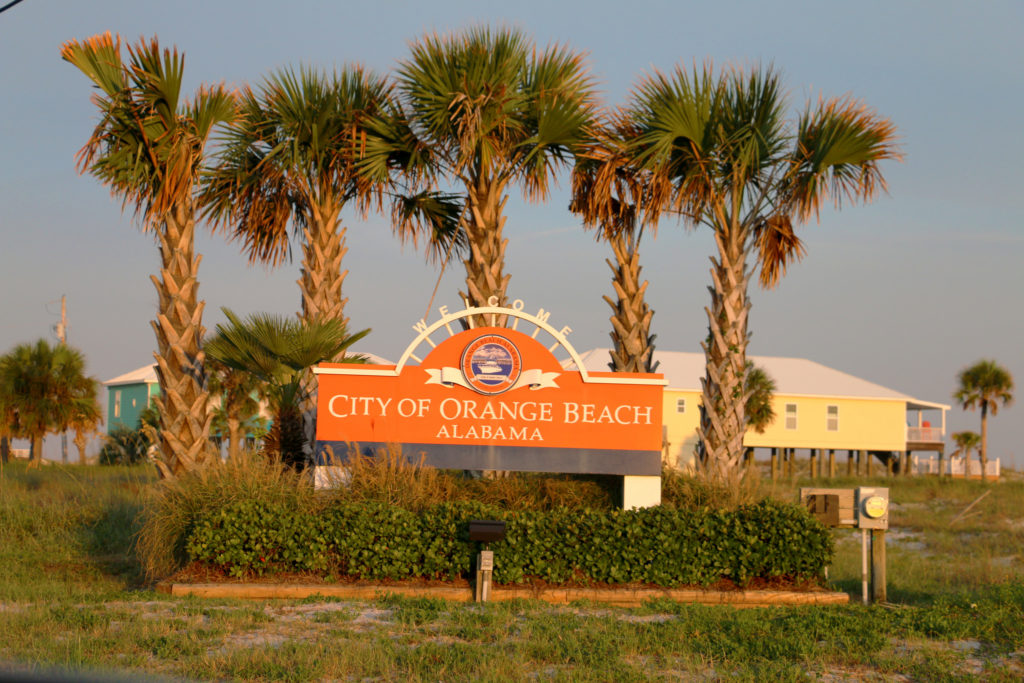
Life presents you with motivational moments. “My thoughts are to have fewer vehicles on the island. Vacationers should park offsite, and ride free shuttles [electric] from secure-parking areas [across the bridge]. Orange Beach has become a very expensive parking lot,” said Ian Boles, a resident of Orange Beach in an email. Developing a strategy for off-island parking with free shuttles makes sense, eliminating the need for a Flyover Bridge west of the Foley Beach Express, and the proposed Wolf Bay Bridge by Doc’s. Imagine taking the $87 Million allocated by the State of Alabama for the Flyover Bridge, and the $60 Million earmarked by the City of Orange Beach for the Wolf Bay Bridge, using those funds to lower the environmental impact of traffic. Electric buses, recharged by solar panels, running every five minutes along the Beach Road (Hwy. 182), Canal Road (Hwy. 180), and Orange Beach Blvd (Hwy. 161), minimizing the congestion problem. We must create several secure parking areas off the island for vacationers, enhanced by Orange Beach’s family-friendly atmosphere, simultaneously providing better control over the visitor experience. City Managers do it at Beaver Creek, Davos, and Disney. Why not here? The city is growing at a phenomenal rate, outstripping infrastructure resources for traffic and boat launches. The Council must find innovative solutions that do not include more parking per condo bedroom, minimizing gridlock on the island. Crafting a 2030 Plan with off-site transfers is vital, engaging with City Council, businesses, and residents, creating policies for the future of parking in Orange Beach, perhaps imitating the example of other successful resort cities. “From timely shuttle buses to complimentary door-to-door transportation, getting around Beaver Creek is easy,” according to a report on the Beaver Creek website.“Complimentary standard parking [off-site] is available to Guests,” according to a report on Disney World. The key issue is Mayor Tony Kennon, refusing to have a publicly viewable 2030 Plan, as if the future is an undecided secret. Mayor Kennon told Fox10 News, “You can’t stop the growth. It’s coming whether you like it or not.” Are the constituents comfortable, knowing their City Council has an insatiable appetite for big developments and the dollars they bring without consideration to the quality of life? A 2030 Plan should not be considered a threat to elected officials. Rather a blue print, providing a venue for meaningful discussions from residents and businesses before adoption. “All I know is we need a road through the State Park,” said Mayor Tony Kennon in aninterview with John Mullen of the Lagniappe, putting commerce ahead of environmental impact, supporting development of the natural resource the State Park was created to protect. Exploitation of the State Park seems to be his real plan, exposing this protected area to development. Luckily the Deep-Water Horizon Settlement Team blocked his proposed roadway across the State Park for 20 years, putting his caucus “in check” for the immediate future. Some will argue Mayor Kennon already has a plan, widening Canal Road, building a Flyover Bridge, and constructing a span across Wolf Bay. Throwing concrete and asphalt at the traffic problem is short sighted, simply hoping it goes away. Orange Beach has had no professional infrastructure studies done by independent-academic bodies. Professional-planning research (aside from ALDOT) is the start of the solution. The Orange Beach Police Jurisdiction (PJ) stretches from the Foley Beach Express to Pirates’ Cove, including many agricultural areas suitable for parking north of the Intracoastal Waterway, according to the GIS Map from Community Development. Respectfully, I propose the city debate off-site parking, because politics is the art of the possible. Elected Officials must undertake feasibility studies by multiple universities, buying non-wetland areas north of the Intracoastal as loading points for environmentally-friendly electric busses, transporting tourists to and from the island, as if Orange Beach were a theme-park resort. Rauf Bolden is retired IT Director at the City of Orange Beach, presently pursuing his dream as a Web Technologies Consultant on the Beach Road. He can be reached by email: publisher@velvetillusion.com. Disclosure: The views, thoughts, and opinions expressed in the text belong solely to the author. I have no business relationship with any company whose stock is mentioned in this article.
Rauf Bolden: Overtourism in Orange Beach
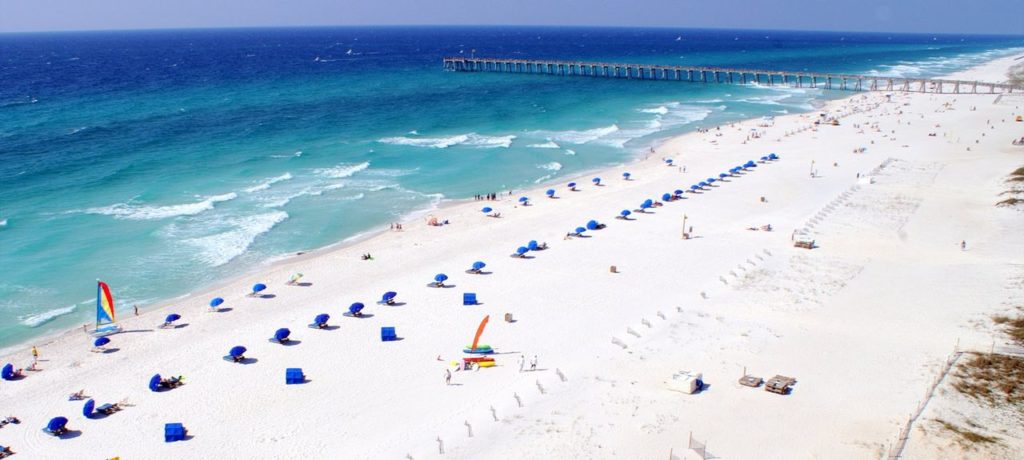
Overtourism is like water, proportionately increasing with the lanes you give it. The impact of overtourism’s traffic in Orange Beach was never anticipated. Is it too much to ask City Council, Community Development, and the Planning Commission to publish their 2030 Plan for growth, replacing the old Horizon 2020 Plan? “In short, overtourism occurs when there are too many visitors to a particular destination. ‘Too many’ is a subjective term, of course, but it is defined in each destination by local residents, hosts, business owners and tourists. When rent prices push out local tenants to make way for vacation rentals, that is overtourism. When narrow roads become jammed with tourist vehicles – these are all signs of overtourism,” according to a report in Responsible Travel. Where is the off ramp for Orange Beach? Continually hiding behind the rhetoric, “They can build [condos] by right,” arguing we cannot stop the growth, because Orange Beach will face litigation. This is the city’s defensive shield, blaming the debilitating traffic from construction-driven growth and unplanned infrastructure on zoning rights. Archaic zoning laws, passed decades ago, place Orange Beach in legal jeopardy if they restrict zoning on grandfathered properties, enabling overtourism to thrive in a booming economy. In 2008 the Taxable Lodging Rentals were $4,268,949 versus the Taxable Lodging Rentals of $23,091,793 in 2018, according to a report from the Citizen and Visitors Bureau in an email. This is an impressive increase in lodging rentals of 540 percent over ten years, obviously generating substantial tax revenues for the city. I do not expect to see a revolt in Orange Beach with protesters shouting, “Tourist go home,” as happened on the streets of Barcelona, Venice and Dubrovnik. We need a bipartisan community plan for sustainable tourism, not a knee jerk reaction where local officials increase lodging taxes, and initiate road widening in a desperate attempt to quell tourist traffic. Does Orange Beach need a comprehensive plan, looking forward to 2030, defining paths for community wellness, infrastructure, schools, churches, businesses, tourism, and the environment? “The old plan [for 2020] was done during [Mayor] Russo’s era [2006]. Should be revisited,” said Lucy Hazebrook, a resident of Orange Beach in an email. “The whole county needs a comprehensive plan for growth. Both Orange Beach and Gulf Shores desperately need a plan for growth. Robert Craft I trust. Terrible Tony [Kennon]? No,” said Brenda Hancock, a resident of Baldwin County since 1961 in an email. The travel industry dictates growth, thinking less about the impact. Is this a key issue? Orange Beach is not a tourist destination in the classical sense of visiting museums, seeing historic artifacts, or wandering through a medieval castle. We are a family destination with a beach, and our primary product is family safety. Keeping visitors safe whether in the water, on the beach, or dining out is the city’s anthem. In today’s world where gun violence litters every news cycle, safety is a primary concern for parents choosing a destination for their families. Yet we still have problems with overtourism. City officials want to address the situation through infrastructure spending, like building a span across the Intracoastal Waterway to County Road 20 without limiting the number of beds for people to sleep in. Mayor Tony Kennon told Fox10 News, “You can’t stop the growth. It’s coming whether you like it or not,” watch here. As if growth cannot be managed, like is an apocalypse. The Orange Beach City Council is poised to allow 677 new housing units (condos) on the Beach Road, underlining the premise of construction by zoning right, according to a report by John Mullen in the OBA Community website. Let’s do the math. If 677 new multi-bedroom units house eight people each, calculated out means 5,416 additional souls wandering the beach on any given day. That’s 1,354 additional vehicles, assuming each family unit only brings two cars. I ask my fellow residents, “Is this what you elected Mayor Tony Kennon to do?” I propose this solution. A 270-day moratorium on all commercial building permits, allowing city officials time to hire planning professionals from multiple universities for policy studies on overtourism, assessing the impact of growth on our beach environment, and the wellness of our residential community. ENDS. Rauf Bolden is retired IT Director at the City of Orange Beach, presently pursuing his dream as a Web Technologies Consultant on the Beach Road. He can be reached by email: helpdesk@raufbolden.com. Disclosure: The views, thoughts, and opinions expressed in the text belong solely to the author. I have no business relationship with any company whose stock is mentioned in this article.
Rauf Bolden : Proposing property tax cuts in Orange Beach
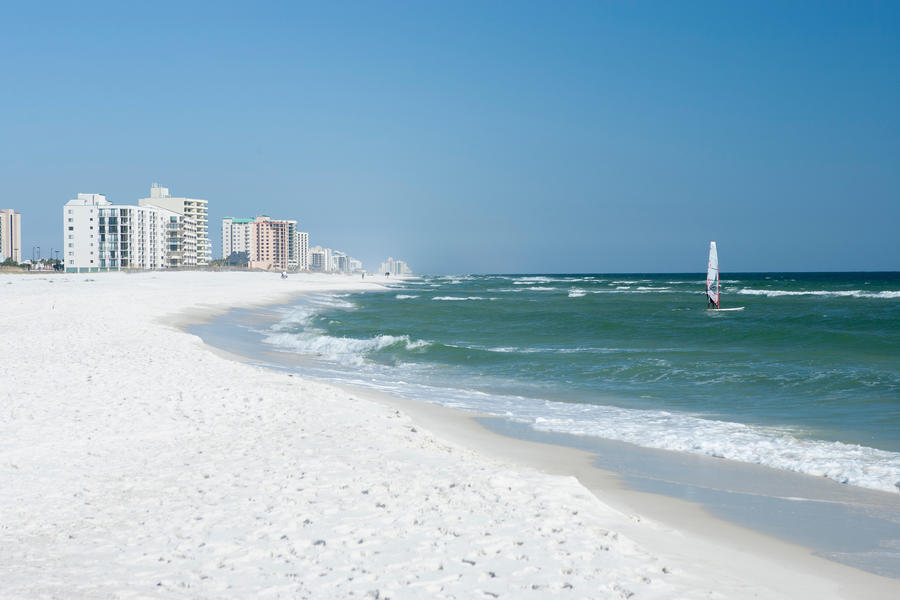
Tax cuts are Republican doctrine. Mayor Tony Kennon does not agree. He raised the lodging tax from 11% to 13%, expressed mathematically it is a monetary increase of 15.38%, (1.00 – 11/13) x 100 = 15.38%. This Ordinance passed in the Council Chambers with five affirmative votes, only Councilman Jeff Boyd dissented. Why are we gouging families who come to the beach on vacation? The lodging tax is geared toward one goal, providing enough funding to build the Wolf Bay Bridge ($60 Million), ostensibly alleviating traffic, making life less stressful for everyone. “It took me 55 minutes to get home [from work], and I live ten miles away,” said Lizzy Burch, Manager of Infinity Bicycles on Hwy. 161. Even before the lodging increase, the city had over $40 million in reserves, generating $15 million above yearly expenses, according to financial reports on the city’s website. Mayor Kennon’s logic is business centric, getting someone else to pay for the bridge through increased lodging taxes, thereby keeping his reserves in the vault. Tax revenue is the life force of a municipality. Let’s explore other ways Mayor Tony Kennon could generate income. Adding two cents to the gasoline tax at the local level, adding thirty cents to the cost of each sugary drink sold as a youth-targeted health tax, adding fifty cents to tobacco products is obviously a health tax, adding fifty cents to each alcoholic drink purchased in the bars and restaurants is a sin tax. All these would increase revenue, but would kill economic growth. Is the role of government to increase revenue streams like a business, or stimulate economic growth? John Maynard Keynes (1883-1946) defined tax cuts as a way to stimulate economic growth. In turn the growth from tax cuts pays for infrastructure like bridges. This concept is the foundation of creating wealth, heralded by Republicans as a pillar of conservative thought. George W. Bush (Republican), and Donald J. Trump (Republican) pushed through tax cuts during their administrations. Mayor Tony Kennon (Republican) just doesn’t get it. He espouses, I am running this city like a business, putting tax revenue ahead of economic growth. A government is not a business. Firstly, a city is a tax-free entity, competing with a tax-free advantage. To manage a government like a business is opening oneself up to charges of leveraging the city’s tax-free status, influencing vendors, cronyism, abuse of power, and ethical foul play. If the city were a business, beholding to its shareholders, they would behave differently. The residents in Orange Beach have not had a direct return on their investment (ROI) in the last ten years, exposing the duplicity of the city’s increasing revenues while living tax free, and not paying a dividend. Let’s look at it as a business. Tax cuts are a way to provide a return, but how? Property tax repeal (4-mils) is a good place to start. In confidence, a Councilman once told me we need that money from property taxes, because they generate approximately $3.5 million per year in revenue. Taking $3.5 million out of a $40 million pot does not seem like a lot to me. Going back to the words of John Maynard Keynes, cutting taxes spurs growth. We must have imagination. Eliminating property taxes in Orange Beach will drive up property values, igniting growth in the local real estate market. The time to press the advantage is now, because eventually Gulf Shores must raise property taxes, supporting an independent school system, driving up the demand for real estate in tax-free Orange Beach, creating wealth for local residents. This idea embraces conservative ideology, but Mayor Tony Kennon will not support a tax cut. Rebating money to residents as shareholders is not what he does, and there is no way to change it. In all fairness we should present practical arguments against tax cuts. Orange Beach must keep adding to its large reserves as a built-in cushion against the devastating effects of possible storms, keeping the city safe during the long recovery. The downside is the Fed will look at Orange Beach’s balance sheet after a disaster, having $40 million in reserves, arguing we don’t need Federal Grants, passing the recovery funds on to more needy neighbors like Gulf Shores, Foley, Satsuma, Citronelle, Bon Secour, Bayou La Batre, and the Gulf State Park. You get penalized for running it like a business. I argue a property tax repeal is necessary, giving back to the community, especially with a favorable balance sheet. Eliminating the 4-mil property tax is an opportunity, increasing real estate values, growing the economy, and creating wealth for local home owners. Rauf Bolden is retired IT Director at the City of Orange Beach, working as an IT & Web Consultant on the Beach Road. He can be reached by email: publisher@velvetillusion.com. Disclosure from Rauf Bolden: I wrote this article myself, and it expresses my own opinions. I am not receiving compensation for it. I have no business relationship with any company whose stock is mentioned in this article. For more Orange Beach articles by Rauf Bolden see Alabama Today.
Rauf Bolden: Breaking promises in Orange Beach
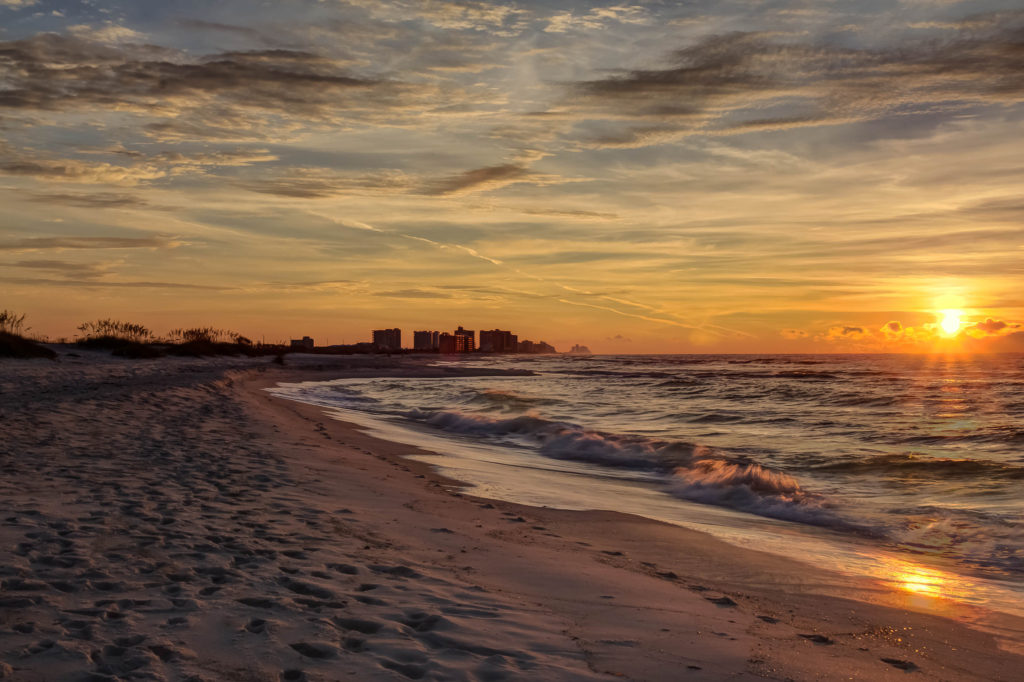
A politician once told me, “The bigger the smile, the sharper the knife.” So, it is in Orange Beach. In 2008, Mayor Tony Kennon came to power on rhetoric espousing the Republican ideal of smaller government. “Small government is a term generally used by political conservatives to describe a government with minimal involvement in public policy or the private sector,” according to a report in Wikipedia. Political conservatism has similar goals, “lower taxes, free market capitalism, free enterprise, deregulation and restrictions on labor unions,” according to a report in Wikipedia. After winning the election, Tony Kennon took the oath of office, proceeded to cut employee benefits, appropriations, vehicles, and staff, reducing Police to 35 people (Charts 1 & 2). His Council Class of 2008 was proud. Today the late Councilman Ed Carroll would not recognize the ideology he shared with Tony Kennon back in 2008. Orange Beach’s government has grown by 69.5%, yet the local population has stagnated around 5,700, according to a Edward VIII on City Data. Chart 1: Employee Comparison for City Departments 2009 and 2019 CITY DEPARTMENT- NUMBER OF EMPLOYEES 2009 NUMBER OF EMPLOYEES 2019 POLICE 35 62 FIRE 41 59 COMMUNITY DEVELOPMENT 13 16 FINANCE 8 10 LIBRARY 9 8 SEWER 19 22 PUBLIC WORKS 46 71 PARKS AND RECREATION 19 20 ADMIN 6 14 TOTAL EMPLOYEES 196 282 Republican orthodoxy is woven into the fabric of Orange Beach residents. Baldwin County overwhelmingly voted for the Christian Theologian Judge Roy Moore (61.7%) in the special senatorial election in 2017 , confirming residents’ belief in small government as a conservative value. Yet somehow the Mayor of Orange Beach is not on the same page. Pre-2008, Mayor Steve Russo provided voting residents with amenities: Recreation Center, Tennis Center, Aquatic Center, Library, Senior Center, and Sportsplex. When the city’s purse was full, he gave back to the community. Post-2008, Mayor Tony Kennon’s regime generates $15 million above expenses each year, and has over $40 million in reserves. While the city’s purse is bulging, residents are given increased fees on sewer, restricted vacation rentals, and higher lodging taxes. Looking back to the pre-Kennon era resident memberships at the Recreation Center, including Pool and Tennis were $20 per year. Today the cost is approximately 400% more. It is easy to say things have changed from pro-resident to pro-money, but the analogies smack more of business fundamentals trumping our quality of life. The head scratching continues. Has government grown to service the needs of the voting residents, or has government grown to service the needs of the revenue generating tourist industry? Tony Kennon has successfully inflated the bureaucracy, completely overlooked cuts on property tax in an era of prosperity (4 mils). Residents and businesses could use a little love. Orange Beach does not have a caucus of conservative minds, canvasing for better leadership. We see a Facebook Group against the Flyover Bridge west of the Foley Beach Express and a Facebook Group against the proposed Wolf Bay Bridge near Doc’s. These do not ensure change. Transformation needs a plan, and a political voice. Conservatism “favors tradition in the face of external forces for change,” according to a report on Philosophy Basics. Encouraging more financial prospectors to make speculative investments in Orange Beach is truly an “external force for change”. Our leaders are content, moving the goal posts, accommodating real estate developments with setback variances. The mask is off the long-term plan. The size of government is directly proportional to the number of developments. As proof, subdivision planning has become more aggressive. “A main point of concern raised [by Council] about the subdivision [Broken Sound PUD, Lauder Lane and Pelican Place] itself was in reference to the small setbacks proposed for the development [40 lots]. For RS zoning [residential], front setbacks are a minimum of 30 feet, rear setbacks at least 20 feet and side setbacks require 10 feet. For Broken Sound, the setbacks are set at 18 feet in the front, 8 feet in the rear and 5 feet on the sides,” according to a report by Crystal Cole/ Islander Editor in Gulf Coast News Today. Short-term rentals will not be allowed in this subdivision. “A condition of the Broken Sound PUD approval was that house rentals shall not be less than six months,” according to a report by the City Clerk’s Office in an email. Mayor Kennon explained his thinking, approving this housing project (See Image 1), “They’re going to have to have X number of units to financially make that work, and it’s going to have to be close. In my opinion, even though these are extremely small setbacks and we all [Council Members] have our problems with that, the alternative project of apartments or more townhomes to me was a greater evil,” according to a report by Crystal Cole/ Islander Editor in Gulf Coast News Today. Tony’s logic is business centric, speaking volumes. I argue, we will wake up one morning, wondering how we missed the setback apocalypse. Image 1: Broken Sound Subdivision (PUD) with 5 ft. side setbacks Some are in opposition to stripping away city planning standards, but there is fear of mayoral retribution. Having bones of contention is an unspoken violation. Last cycle, one council member had a vision for better governance, breaking ranks, declaring a much-anticipated candidacy for Tony’s job. The candidate was immediately uninvited from the council’s internal meetings and discussions, according to sources familiar with the events. Such retribution, “is used to discourage future behavior,” according to people who spoke on the condition of anonymity. I assume Mayor Kennon has already found someone to challenge this malcontent in the 2020 election cycle. Not everyone complains about Kennon’s brand of real-estate conservatism. To his credit Mayor Kennon purchased and renovated the Event Center, painted to look like the hotel next door, appearing from the bridge to be part of the same brand-name entity, making it easier to rent out. He also rebuilt the crumbling Art Center from the ruins of the old Orange
Rauf Bolden: Opposing taxation without representation

“It is all about the money. “Money to get the power, power to keep the money,” according to Machiavelli’s patron Lorenzo di Piero de’ Medici. Orange Beach has the power to tax people living outside the corporate limits, and the power to keep the money without allowing them to vote. State Sen. Chris Elliot – Republican, and Gerald Allen – Republican propose doing something about it. Their answer is Alabama Legislation SB19 & SB23. “S23 [SB23 is] a good idea in some respects; however AL is only state in US which grants as much authority to public officials without opportunity to vote on those officials! A complicated issue which has taken lot of legislative time with no good solution!” said Alabama State Rep. Steve McMillan (Republican-Gulf Shores) in an email. Both pieces of legislation argue that a person should have the right to vote for the people who levy taxes, require business licenses, and handle law enforcement in their jurisdiction. It all seems reasonable to me. Orange Beach Mayor Tony Kennon does not agree. Resolutions opposing the senators’ legislation passed unanimously in the Council Chambers on March 19th, according to a recording on the city’s web site, approximately at time index: 14:30. • “Resolution opposing proposed SB19, and opposing any action by the Alabama Legislature that would exempt certain vacation, short-term rentals from lodgings taxes [13%],” according to item 11 on the Agenda’s website. • “Resolution opposing proposed SB23 [], and opposing any action by the Alabama Legislature that would restrict or remove municipal police or planning jurisdictions,” according to item 10 on the Agenda’s website. I reached out to Orange Beach’s Legal Administrator, asking why quashing SB19 & SB23 is so important to the city. Their office did not respond to my request for comment. “Rumor has it the House [Alabama] is blocking the legislation [SB19 & SB23] and it will never pass. City lobbyists deeply involved. Monies from police jurisdictions too valuable to lose,” said Ernie Church in a Facebook Group, End The #Bridge2Nowhere. The legislation SB19 tackles eliminating unfair hospitality taxes. “Transient occupancy tax (lodging tax), not applicable to tent camping, marine ships, and recreational vehicles, Sec. 40-26-1 am’d,” according to a report on LegiScan. Similarly, SB23 seeks to dispose of outside-the-city mercantile taxes, “Municipalities, police jurisdiction and planning jurisdiction, limited to property within corporate limits, provisions for business licenses and sales taxes outside of corporate limits repealed, Secs. 11-51-90, 11-51-206 repealed; Secs. 11-40-10, 11-52-30 am’d,” according to a report on LegiScan. We are looking for clarity, but there is no distinct path forward. Legislators will need consensus, and a willingness to see past a small municipalities’ obsession with the power they hold over their neighbors in the police jurisdictions (PJ). The State of Alabama should demand Orange Beach seed authority to the people who live in the PJ (north of the canal), or incorporate them into their municipality, changing the electoral map forever. Police Jurisdiction of Orange Beach (populated areas outlined in orange north of the canal). Source: See Orange Beach GIS Website. Population of Orange Beach (inside city limits, south of the canal). Source: See Google Public Data. The unfairness of a small group of people having political leverage over the lives of individuals living in the unincorporated areas north of Orange Beach is unsustainable. Mayor Tony Kennon’s resolutions argue for the status quo, ostensibly keeping as much money as possible in the city’s coffers, simultaneously oppressing the voters living outside the city limits.Have the people on the North Shore finally woken up to this power grab?Supporters of the Elliott-Allen Legislation (SB19 & SB23) need the muscle of existing regulations, arguing cities have not adhered to the present rules. Thereby freeing the unincorporated from the constraints of extraterritorial taxation. The requirements are clear, according to the Alabama Department of Revenue. The stipulations for posting Ordinances and maps on the website are quoted below: 1. Copy of the 30-Day Notice that was posted for the following police jurisdiction related ordinances passed on or after 9/1/15: • Ordinances enforcing police or sanitary regulations and prescribing fines and penalties for violations thereof within the police jurisdiction.• Ordinances to fix and collect licenses for any business, trade, or profession done within the police jurisdiction.• Ordinances to levy and assess taxes within the police jurisdiction. 2. Map showing the boundaries of the municipal limits and police jurisdiction: • Due no later than the first day of January in each year.• Maps in PDF or JPG are preferred. Not many Alabama Cities are in compliance. It can be argued that municipal non-compliance automatically exonerates residents from paying taxes. Although this position will be challenged. Citizen complaints should be reported to Alabama Revenue: LocalTaxUnit@revenue.alabama.gov, or faxed to 334-353-7666. I wrote Senator Gerald Allen (R-Tuscaloosa) who sponsored SB19, asking for comment. “Senator Allen [R] will be making public comments when the bill is placed in Committee,” according to an email from Luanne Miller of the Senator’s office. The key issue is getting both these pieces of legislation passed by the Alabama Senate and House. Then signed into law by Governor Kay Ivey. Orange Beach’s lobbyist former Governor Bob Riley will be hard at work, whispering in ears, and twisting arms. If the bills pass, Orange Beach will not have jurisdiction over the North Shore. No planning jurisdiction means no Wolf Bay Bridge. I reached out to Senator Chris Elliott (Republican-Baldwin County). He sponsored SB23. The senator’s office did not respond to my request for comment. Mayor Tony Kennon will fight, saying we do not need to make any changes, supported by his resolutions opposing a refresh. He may argue the city provides services across the canal, including fire and police protection for the residents. Therefore, Orange Beach should keep its extraterritorial jurisdiction as a matter of public safety. Since incorporation in 1984 no Fire Station or Police Precinct House has been built on the North Shore. The public safety argument is nothing more than a smokescreen for keeping the present state of
Rauf Bolden: Rejecting environmentalism in Orange Beach
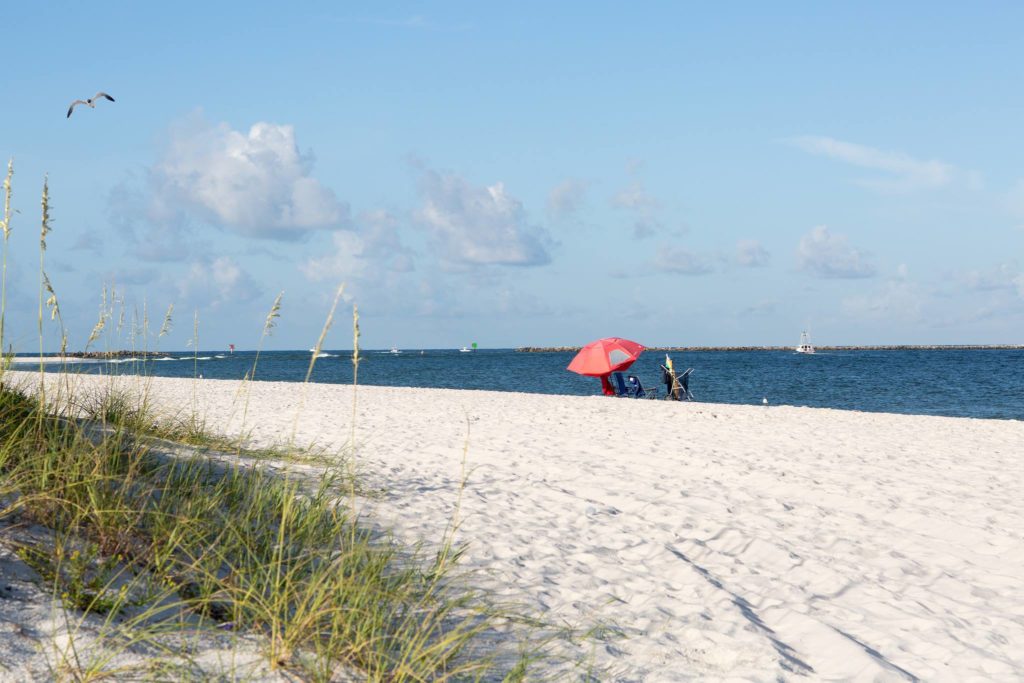
The construction of the new Lodge in the Alabama State Park set the bar, specifying solar panels for power, recycling water from air conditioners, catching rainwater off the roof, and innovating in ways that reflect the environmental values of our local community. The Gulf State Park Lodge is a shining example, begging our local elected officials to wake up and smell the coffee. Environmentally friendly technologies like solar panels; air conditioner water recycling and rainwater collection are viable, being easily incorporated into building sustainable technologies for the new Middle School/High School in Orange Beach. Unfortunately, the political will is not there. By contrast, “The park is recognized as an international benchmark for environmental and economic sustainability,” according to a report on Gulf State Park Facebook. Broadening the sustainability equation, enveloping the City of Orange Beach will help the city’s environmental image, simultaneously generating significant energy and water savings over time, re-paying the initial cost of adding renewable systems to the new school’s construction. The Gulf State Park is leading the way. The Lodge’s sustainability profile provides an impressive example to follow: “….It collects, stores and treats 105 percent of the water needed by guests and the surrounding landscape. It features an 11,000-gallon water cistern that stores rainwater collected from the building’s roof. ….It is completely self-sufficient and will generate 105 percent of the power needed with solar panels placed at the site’s southwest corner (This means the facility generates more energy than it uses.),” according to a report on Gulf State Park Facebook. I argue, mandating FORTIFIED Homes and Commercial be built as energy and water efficient as they are hurricane resistant is crucial, minimizing the environmental impact on Orange Beach. How did we get here? “Hurricane Ivan made landfall in Gulf Shores on September 16, 2004 and devastated [the] Gulf State Park. This category III storm (categorized as one of the top five worst storms to make landfall on the Gulf Coast) broke the pier into three sections, washed out the bottom floors of the hotel, totaled one of the cabins, and flooded the majority of the park with salt water,” states the Alabama State Parks web site. Ivan required Orange Beach to re-evaluate new home and commercial builds, adopting the FORTIFIED Homes and Commercial criteria as their building codes, but no environmental sustainability amendments like solar panels and water recycling were included. “We [The State Park Lodge] meet the highest standards for an environmentally sustainable hospitality and meeting experience and are seeking certification as a LEED Gold facility, FORTIFIED Commercial facility, and SITES Platinum landscape,” according to a report on The Lodge’s web site. “With new trailheads and places to pause, along with interpretive and wayfinding [sic] signage along the way, it’s ideal for enjoying the stunning natural beauty of Alabama’s Gulf Coast. And it’s accessible to all levels of physical ability. So park your car and leave it behind for unforgettable hikes of all types,” according to The Gulf State Park web site. What appears to be environmental harmony in Orange Beach like trails and clean beaches makes the symphony incomplete without interconnected sustainability woven into the fabric of our local building codes. The City of Orange Beach is singularly focused on the big picture, primarily its bottom line. The FORTIFIED Homes and Commercial standard provide reductions in insurance premiums for locals; but environmental sustainability does not. Mayor Tony Kennon came away impressed with the new lodge, and its stout construction. “I think they did a first-class job,” Kennon said in a report in the Lagniappe. “It’s a unique design but it’s also built in such a way to be fortified to withstand storms and survive. So, I’m very proud of it.” He never disappoints, clearly implying FORTIFIED Homes and Commercial standards are important to him. I argue for a plan, demanding resource conservation measures like solar power and water recycling be incorporated into the city’s FORTIFIED Homes and Commercial building codes, as environmental addendums. When the Gulf State Park opened, the speeches were a master class on the Park’s aspirations for the local community. Mayor Kennon entertained his friends, clearly not cheerleading these sustainability standards. I assume it was because there is no financial incentive in it for him. A solar powered house in Orange Beach does not add more money into the city’s general fund from the electrical cooperative’s partnership with local government. Every year Baldwin EMC presents the City Council with a check for approximately $1 Million, from coal generated power sold to local residents. Alternatively, the Gulf State Park’s sustainability statement suggests raising the standard of environmental ethics over monetary gain, “Environmentally friendly operations and facilities; support for the protection of cultural and natural heritage; direct and tangible social and economic benefits to local people,” according to The Lodge at Gulf State Park web site. On the face of it, Baldwin EMC and Orange Beach rail against adding solar homes and commercial, because it cuts into their margins. According to documentation obtained in an email from Greg Gipson, Manager of Business Development, Energy Services, and Advanced Metering at Baldwin EMC, the electrical provider requires liability insurance and upgrade-payment guarantees from EMC’s solar customers. This procedure insulates EMC’s upstream suppliers from financial exposure by pushing additional expenses for solar connectivity down onto the solar users, according to EMC’s “Members Guide to Interconnected Distributed Resource”, pgs. 8-9. “The Member (read: EMC customer) may be compensated for the power [on solar projects] that flows onto the distribution system,” according to EMC’s “Members Guide to Interconnected Distribution”, pg. 7. This language is conspicuously vague as to if and how much credit is given for each watt of solar power generated. The city’s position is diametrically opposed to the environmental values espoused by the Alabama Gulf State Park. The Park calls for, “Direct and tangible social and economic benefits to local people,” according to a report on The Lodge at Gulf State Park. Elected officials in Orange Beach made a conscious choice about climate change, solar power,
Rauf Bolden: Government revisiting fiber-to-the-home in Orange Beach

Here we go again, resurrecting the same old plan when so many new options are on the table. “Once we get the marketing materials together and get the name out there in the area we are going to start marketing ourselves as a fiber to the home provider [in Orange Beach],” said WhiteSky’s Matt Amick. “Within the next month or two we’re really going to start working on it.” This prepaid enrollment plan failed before, and it will fail again. “An effort last year through CenturyLink fell through mainly because of a lack of consumer confidence,” said Councilman Jerry Johnson in a report on the obawebsite. I guess consumers will have more confidence in a company they never heard of before today. The premier fiber-to-the-home (FTTH) city in Alabama is Sylacauga, “The Utilities Board of the City of Sylacauga is the sole provider. We are a gigabit city and we offer service within our electric service area and a few areas outside of same. We bring the service to customers on demand. We did not run fiber to every brick and mortar hoping for a subscription,” said Reay Culp, Network Administrator for the Utilities Board of the City of Sylacauga in an email. The Sylacauga model is exemplary because their municipality is heavily invested, believing in the idea. Orange Beach Mayor Tony Kennon should take a posse north, putting boots on the ground, seeing why Sylacauga is the shining light, perhaps returning with elements from their playbook before rolling out another doomed proposal. Doing more onsite research, traveling to see what works in other fiber communities like Bristol, Va.; Dalton, Ga.; Chelan County, Wash.; Grant County, Wash.; Jackson, Tenn.; Kutztown, Pa.; and Reedsburg, Wis. will help focus the lens. Orange Beach must do a better job the second time around instead of trotting out the same old prepaid subscription chestnut as before. Senator Mitch McConnell (R-Ky) says there is no education in the second kick of the mule. Why do we have this problem? Quite simply said, the world is changing. Internet access and generous bandwidth are as indispensable to local families as air. Today’s economy cannot function without both. Getting Internet is the easy part, having enough bandwidth to support families with children, operating multiple devices, and businesses with an online presence are where fiber connectivity comes in. Orange Beach needs young families to move here, supporting our economy. High bandwidth homes will give the city the potential to market itself to professionals who do not need to report to their offices every day, possibly moving their families to Orange Beach, raising their children in a safe environment, attending our schools, worshiping in our churches, and participating in local government. A fiber infrastructure will attract a class of resident that is technologically savvy, having more years in front of them than they have behind them. Building out the network with city funds ensures the future survival of this vibrant community. That’s what’s important here, investing for familial continuity. Do we really have to connect every home in Orange Beach with fiber in order to achieve high-bandwidth connectivity? The answer is no, because the city owns several strands of dark fiber, supplied by Harbor Communications. Harbor has fiber traversing every arterial road in the city, and they already supply all city facilities with Internet service and VoIP phones. When coupled with a Verizon partnership, perhaps a fiber operator is best suited, helping Orange Beach create the first 5G city in Alabama. “5G is reaching speeds that are twenty times faster than 4G LTE,” according to a report on the Droid Guy. Alternatively, residents needing immediate increases in bandwidth can purchase a small Internet device (JetPack) from a Verizon store. This 3”x5”x1” box offers a choice of several “4G LTE [no unlimited]” plans, allowing simultaneous connections on several devices. So you see, high-speed Internet in terms of bandwidth already exists in Orange Beach through a wireless carrier. It is just a matter of deciding if you want to go wired with fiber or wireless without. I do not make this statement lightly. Verizon powers the city’s cell phones, Police mobile, and Fire mobile. These “JetPack” devices have proven to be very reliable for our first responders, and department heads. Communications between essential personnel in the City of Orange Beach cannot be down, per Mayor Kennon. Outlining 4G availability options to our constituents as a realistic alternative to wired connections will help cut Internet provider complaints to city hall, perhaps gaining traction for a city financed upgrade to the next generation of 5G wireless service. 5G requires a build out, combining buried fiber optic cables and electrical power, interconnecting the poles along the rights-of-way into an integrated infrastructure network. The build will look something like this. Each pole is set approximately one-quarter of a mile apart along Canal Road, Hwy 161, and the Beach Road. I know this is possible with fiber already in the ground, because I have the fiber maps, but I cannot share them here, because they are proprietary. Attached to these poles is a 5G antenna, being cylindrical in shape about the size of an electrical transformer you see on generic power poles. I argue the city should finance the build out of a 5G network, guided by technology from Verizon’s engineers, creating a telecommunications model that will carry Orange Beach into the 22nd century, bringing high speed Internet to every family and business that wants it. “The initial cities that will support Verizon 5G home broadband are: Indianapolis, Indiana; Los Angeles, California; Sacramento, California; and Houston, Texas,” according to a report on 9to5Mac. Being first in the market has its drawbacks. “Verizon has been in a cutthroat competition with AT&T to be the first carrier to offer 5G, and it already claimed that title — sort of. The telecom giant launched a pre-standard 5G network in the fall of 2018, deciding to move forward with its own technology rather than wait for slow-moving standards bodies to
Rauf Bolden: Avoiding transparency in Orange Beach

Transparency is defined in many ways, but one thing is certain. You cannot make a drawing without shadows. Minutes of the regular Orange Beach Finance Committee Meetings at City Hall are not made public, starving residents and employees of insight into the committee’s decision making process, like raising deductibles on employee insurance, or increasing taxes on lodging. The minutes of committee and sub-committee meetings may be legally bound by the Alabama Open Meetings Act (OMA) – Act No. 2005-40: “All boards, bodies, and commissions of the executive and legislative departments of the state (and its political subdivisions) or municipalities, which expend or appropriate public funds [are legally bound]. Special Note: ‘All standing, special, or advisory committees or subcommittees’ of these bodies [municipal] are also bound to OMA regulations,” according to A Manual for Alabama Public Officials, authored by former Attorney General Luther Strange. It is my wish that the minutes of all committee and sub-committee meetings in Orange Beach are posted on the city’s web site, ensuring ultimate transparency whether or not the OMA applies. It is just respectful to let the voters and employees know where the debate is going, essentially before the committee’s final decision is rendered, allowing people a chance to lobby for changes. “Attorney General (AG) Opinion No. 2002-163 states that the minutes of public agencies [committees and sub-committees] are public records,” according to Marie Newman of the Alabama Attorney General’s Office in an email. The question now is whether the Orange Beach Finance Committee is required to post minutes of their meetings. “The Alabama Sunshine Law requires that meetings of certain named boards and any body, board, or commission charged with the duty of disbursing public funds, or to which is delegated legislative or judicial functions, be open to the public,” according to AG opinion No. 2002-163. At first blush the Orange Beach Finance Committee may not have been naughty in not providing minutes to the public, but this point is arguable. “The official minutes of an agency’s meeting are prima facie evidence of the facts stated therein. As a general rule, the records of the meeting are open to public inspection (73 C.J.S. 22). Generally, administrative bodies [committees] should take minutes of meetings which accurately reflect all proceedings before them.” according to AG opinion No. 2002-163. How do we get copies of these minutes? I submitted a Public Records Request for the Finance Committee’s minutes on January 30, 2019. “The Finance Committee operates strictly in an advisory capacity for the Mayor. It is not an official Council Committee, so no minutes are required or maintained,” according to the City Clerk’s office at the City of Orange Beach in an email. I may be very wrong in my request for transparency, but another interpretation exists, “Special Note: … advisory committees or subcommittees’ of these bodies [municipal] are also bound to OMA regulations,” according to A Manual for Alabama Public Officials. The only other way to get these records is by going to law (civil complaint). This is not recommended. Legal proceedings take years. I can cite one case where the City of Orange Beach (defendant) was exonerated after paying the plaintiff $47,500, because the plaintiff was just tired of fighting, and wanted to move on. The city carries insurance against lawsuits, lawyering up on any civil action against them. The average citizen may win the battle, but it will certainly not be a bloodless or emotionless victory. Fighting for what you believe in wears you down. The key issue is the will of the Finance Committee’s Chair, providing transparency, letting the records tell the story of what is going on behind closed doors. Learning that finance meeting records should have been posted will be remedied with a forgivable “Oops”, or a “my bad”. Nothing more. Some perceive our request as invalid, arguing the finance meetings are only consultative with the executive, and not constrained by the OMA. This may be a mistake on their part, because committee members are legally shielded when complying with the Open Meetings Act (OMA), ”In addition to existing immunities, members of a government body (committee or sub-committee) who participate in an OMA-conforming open meeting are absolutely immune from liability for any statement made during the meeting that relates to an action pending before the body,” according to A Manual for Alabama Public Officials. It looks as though our hands are tied if the Finance Committee does not want to share its meeting records, staying isolated, playing by themselves in the corner, making drawings in the shadows, and avoiding transparency. Rauf Bolden is retired IT Director at the City of Orange Beach, working as an IT & Web Consultant on the Beach Road. He can be reached by email: publisher@velvetillusion.com.

